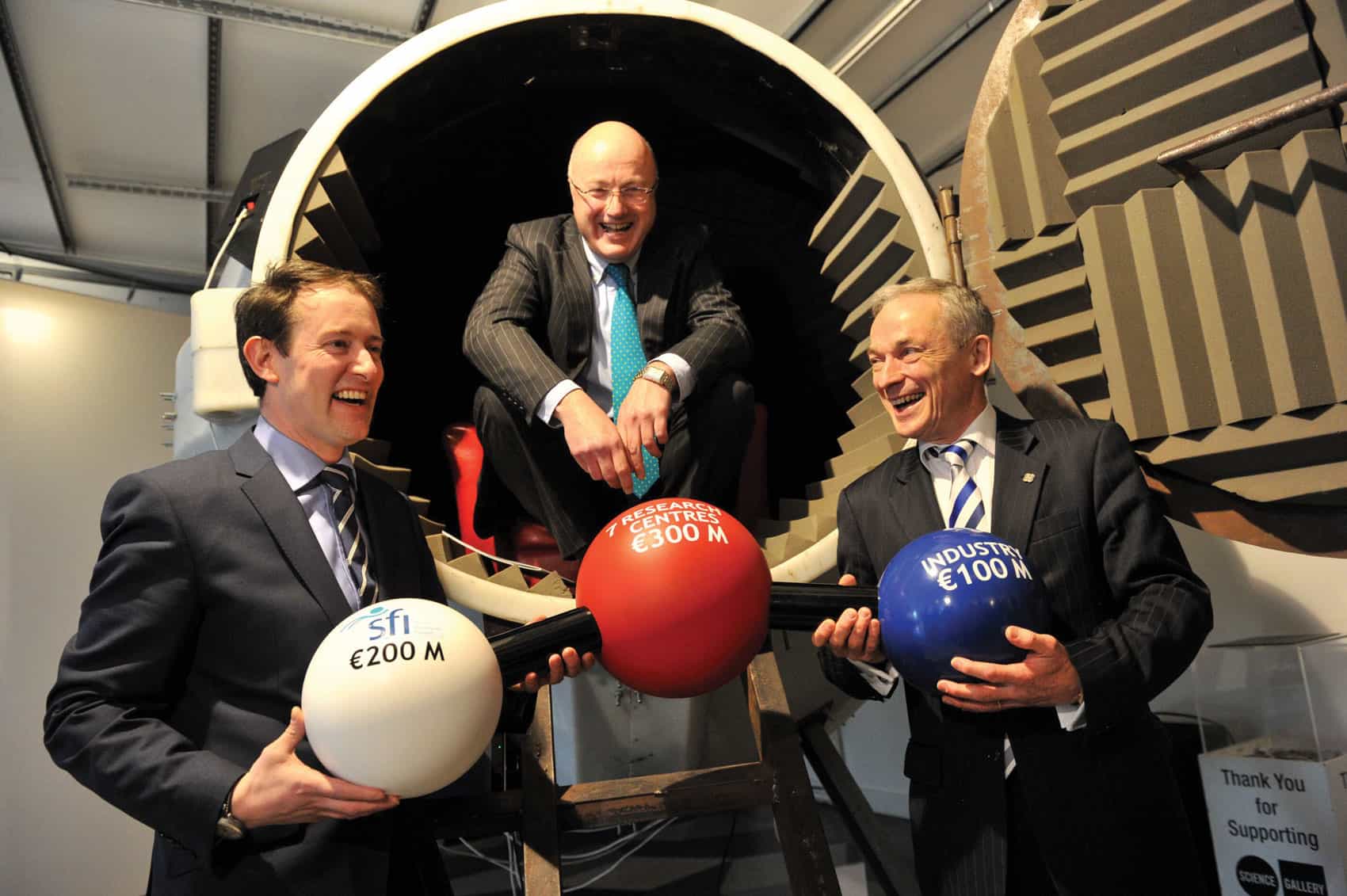Science Foundation Ireland’s vision to align Ireland with priority areas for industry, medicine and society can have major benefits for the country’s economy.
Scientific research in Ireland has transformed in the last two decades. In fact, someone whose last contact with Irish research was in the 1980s or 1990s would barely recognise the landscape in 2013.
Today, scientists in Ireland are researching, publishing, commercialising and collaborating at an unprecedented scale. Many are engaging with industry, working on innovations such as more effective pharmaceutical targets and synthesis, functional foods, new enabling nanomaterials for electronics, medical devices, clean technology and better use of information in society.
Science Foundation Ireland (SFI) has been a key driver of this progress. Established in 2001, the state agency has overseen investment of €1.5bn to date into research capability in Ireland in the areas of ICT, life sciences and energy.
Over the last decade, SFI has built up a community of thousands of researchers in Ireland’s higher education institutes, led by hundreds of principal scientists and engineers. SFI’s focus is on excellent scientific and engineering research, and also its potential impact, according to director general Professor Mark Ferguson. He describes how SFI-funded centers and academics have established collaborations with companies to enable research and innovation and to translate scientific discovery into societal, commercial and clinical benefit.
“Over the last decade or so, SFI has built research capacity and linked researchers with a clear rationale in mind: good scientific research generates the knowledge and human capital that enables enterprise to climb the value chain,” he says. “That is why SFI-funded researchers and centers have been encouraged to work alongside industry partners to the benefit of both, in terms of new technologies and the training of highly skilled people.”
More than 600 indigenous and multinational companies have already established deep collaborations with SFI research groups. Such partnerships have looked at – among many other things – more efficient ways to diagnose disease, to fight antibiotic resistance, to harvest forests more efficiently, to explore the next generation of materials for electronics and to harness cloud-based services for commercial benefit.
Several companies have also spun-out based on SFI-funded research, including biotechnology company Opsona Therapeutics, which has developed potentially immune-modulating compounds that are in clinical trials. SFI-funded research into genetics resulted in the development of a commercially available ‘speed gene’ test for thoroughbred horses, which Irish company Equinome is now bringing to the world of horseracing. And spin-out Seevl is using semantic web technology developed through SFI-funded research to drive its music recommender software.
Future agenda
“SFI has a vision to build on the established research capacity in Ireland and strategically align it with priority areas for industry, medicine and society,” explains Professor Ferguson. Already this year, SFI announced a €300mn (around $390mn) package with €100mn provided by industry to support seven industry/academic collaborative hubs over six years.
The hubs will engage more than 150 industry partners and will focus on key areas of data analytics, nanotechnology, bioengineering, perinatal diagnosis, photonics, drug synthesis, marine renewable energy and functional foods.
Over time, more hubs will be added, and ‘spokes’ or projects will link into the hubs to build scale and meet the demands of changing opportunities in markets and in discovery. So far, 156 industry partners are connected to the centres, spanning multinationals and SMEs, including Cisco, Hewlett Packard, Microsoft, Medtronic; GSK, Pfizer, Eli Lilly, BT, Kerry Group, The Irish Times, ESB, Alere, RTÉ, Intune Networks, Intel, IBM, Roche, UTRC Ireland, and many more.
“Ireland is a small country; we can’t do everything,” says Professor Ferguson. “So our strategy is to identify priority areas where we can scale-up based on existing excellence, and where we can link with industry to translate that excellence into impact.”
Open for business
The SFI centers form a plank in SFI’s ambitious Agenda 2020 roadmap, which outlines several goals to support Irish science and engineering to deliver economic and commercial impact. “One of those goals is to increase the numbers of SFI-trained researchers employed by industry – the aim is that by 2020, 50% of SFI trainees would move to industry as a first destination,” explains Ferguson.
Agenda 2020 also outlines plans to develop ‘testbeds’ in Ireland in areas such as telecommunications, hospitals, marine and agriculture, and the plan is to co-fund major initiatives with industry.
By building partnerships between excellent researchers in Ireland and companies that can benefit from research, SFI is helping to make Ireland a great country in which to do business,” notes Ferguson. “We have the capability to do excellent research in Ireland. At SFI we have our eye on the impact and we want to encourage like-minded companies to link in with our innovation and create something bigger for everyone.”
*This article was originally published in Doing Business in Ireland 2013.





